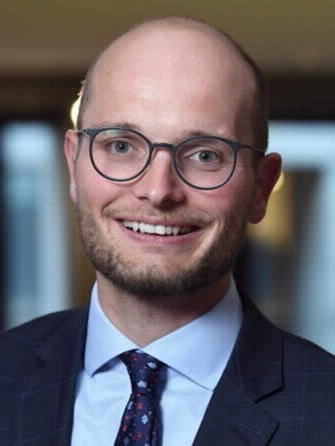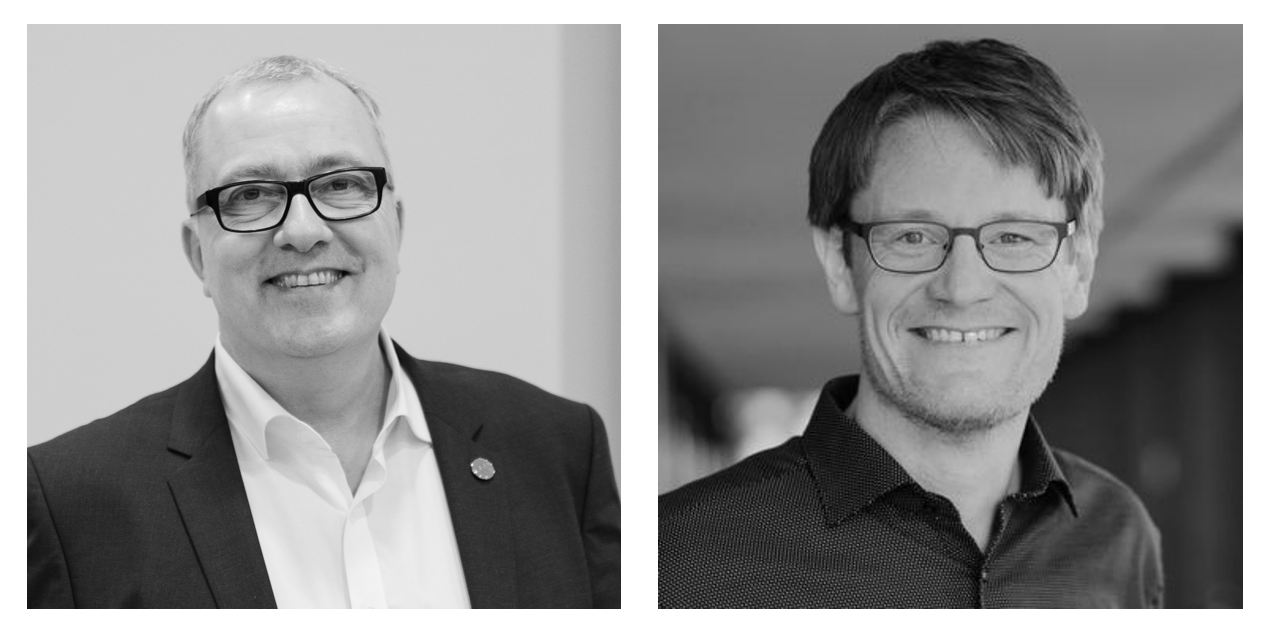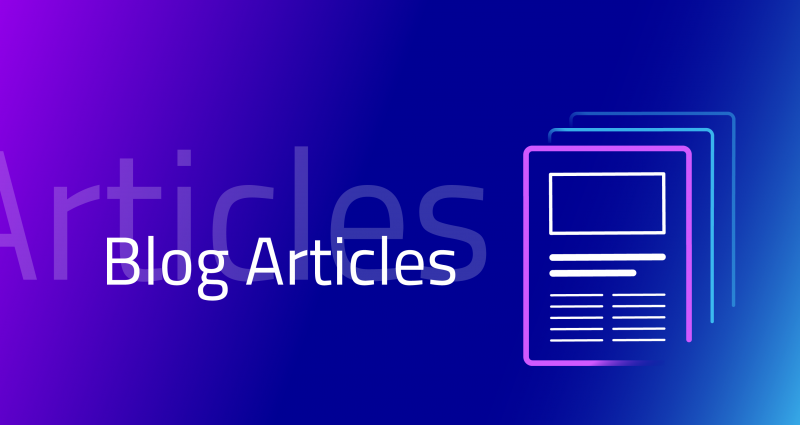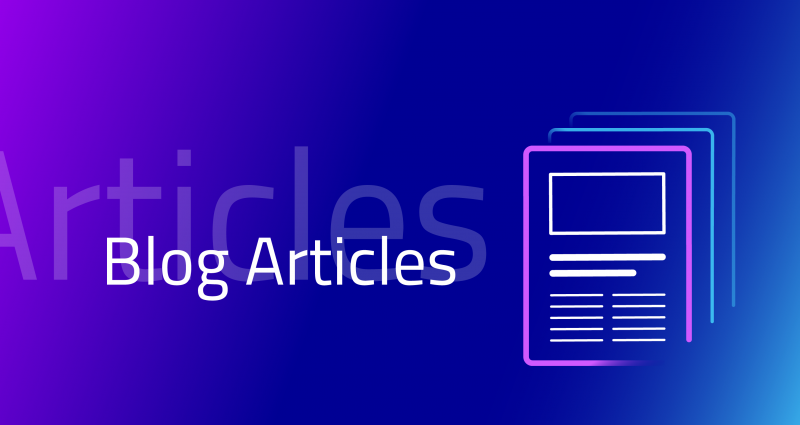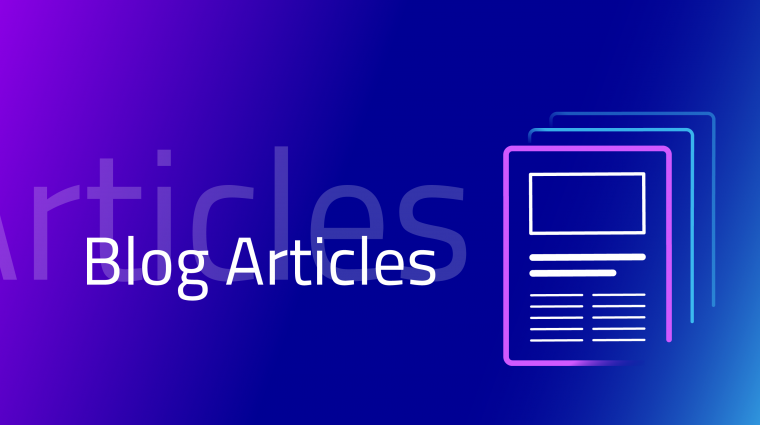
An interview with Peter Kraemer, Head of Gaia-X Hub Germany
Peter Kraemer heads one of the most important hubs in the emerging data ecosystem for Europe: the Gaia-X Hub Germany. Kraemer, who has a degree in sinology and who speaks fluent English and Chinese, works for the German Academy of Science and Engineering (acatech) in Munich, a publicly funded think tank that has supported the Federal Ministry for Economic Affairs and Climate Action in Gaia-X from the outset. With his current team of 14 employees, Kraemer supports Gaia-X projects in Germany in their development. In this interview, he reveals why the user companies and sectors play such an important role in Gaia-X.
Mr Kraemer, what role do the national hubs play in the Gaia-X initiative?
Today, the Gaia-X initiative is supported by two organisational pillars: the Gaia-X Association and the Gaia-X Hubs. The Gaia-X Association for Data and Cloud in Brussels constitutes the institutional core of Gaia-X and was founded in early 2021 as an international non-profit association under Belgian law. As the ‘guardian of the Grail’, it defines the standards, rules, and the reference architecture for future cloud infrastructures based on the Gaia-X model. It also orchestrates the development of the necessary baseline technologies.
The second pillar comprises the Gaia-X member companies, who organise themselves in national hubs. This is where the pilot projects of different sectors and data ecosystems come together – and this is where we determine which concrete needs the companies see for their projects in Gaia-X. We align these with the other hubs and bring them to the Gaia-X Association in Brussels.
If Gaia-X sees itself as a Europe-wide initiative, why is it that users organise themselves on a national level?
First of all, it is important for each member country that its user landscape is represented in the initiative. You cannot manage that centrally in Europe. You have to federate it, as we call it. The individual countries in the EU have massive differences when it comes to their companies’ characteristics. While in Germany, the “Mittelstand” (SMEs) with its hidden champions has world market leaders in industrial niches, in France it’s more about large corporations. This also leads to different requirements for cloud services. For this reason, as advisors to the Federal Ministry for Economic Affairs and Climate Action, at acatech we developed the concept of the hubs in 2020.
What are the tasks of the Gaia-X Hub Germany?
Primarily three:
Firstly, we are the central contact point for all interested companies, organisations, experts and journalists in Germany. To look, for example, at the Mittelstand mechanical engineering company from East Westphalia-Lippe: here, there would be a lower inhibition for picking up the phone and calling a Munich number than there would be for phoning Brussels – there the call might be answered by someone who, in the worst case scenario, doesn’t speak the language and only has a very cursory understanding of the regulatory, structural and technological problems the company is facing in the digital transformation.
A navigation function is also part of the package: We let interested parties know what Gaia-X is about and how to get involved. Then we help them find the right contacts and working groups for their needs.
Secondly, we have an eye on the market. We identify related initiatives that have overlaps with the goals of Gaia-X and connect them with each other. This applies equally to publicly funded and private-sector projects. For example, the Gauss Center for Supercomputing, which is funded by the Federal Ministry of Education and Research, needs to at least know about Gaia-X, or even better, to participate in the initiative. The same applies to the national research data infrastructure or the national education platform or the various AI initiatives in the ministries.
This task requires in-depth knowledge of the national project landscape and could therefore not be managed centrally from Brussels. National hubs are needed for this.
How does this result in tangible added value?
This is our third and most challenging task. It is about concrete benefits through the use of Gaia-X. It goes without saying that this includes added economic value for companies, but it also involves progress in research, in administrative processes, in healthcare or in the everyday lives of citizens – for example, through easier access to digital services.
A one-sided centralist approach involving the imposition of standards, rules and certain technologies from Brussels would not be the solution here. The digital transformation of our societies is a pioneering field. We first have to find out in practice in what direction we want to go, what is required to make this happen, and how it all works together in the best possible manner. For this, we need those who will later have to live with and work with these technologies: the users.
That means the national hubs collect the sectors’ requirements?
Simply asking about the requirements does not deliver on the goal. We initially have to develop a common understanding of problems and available technologies. In order to build an informed baseline, in the German hub we are currently organising ourselves in ten working groups. Following the model of the European Data Strategy, we are orienting ourselves towards the major transformation topics and sectors. For example, data-supported agriculture, energy systems, connected mobility, Smart Cities & regions, connected industrial production, healthcare and telemedicine, digital administration and so forth.
All members who want to benefit from Gaia-X and the resulting technologies and standards meet regularly in these working groups. Their goal is to develop digital business models or improve existing digital services.
In this regard, our most important gateway currently involves eleven projects from the Gaia-X funding competition of the German government, which we are supporting intensively. Based on these case studies, we see in practice how Gaia-X can be tapped into, which existing technologies we need for a transparent, fair and sovereign data ecosystem, and where new solutions still need to be developed.
Why do Europeans have to go to all this trouble when high-performance and successful cloud infrastructures are already available elsewhere?
Cloud computing as we know it today has turned the decentralised idea of the Internet on its head. Instead of free competition, we are seeing a market concentration in digital infrastructures and a struggle among cloud platforms for customers and their data. Instead of uniform rules for all, the hyperscalers are staking their claims and determining the rules in their sphere of influence. Because their platforms often have no alternative, they impose their rules on entire industries and countries.
We must therefore ask ourselves the question: Who are the winners of the data economy today? At least not those who create tangible value, such as product manufacturers. Instead, aggregators and platform operators are profiting.
How do you want to counter this supremacy?
In any event, we are not working on a European hyperscaler, as some headlines claim. The power of Gaia-X lies in the combination of dedicated users and the strength of EU standards and rules for the European Single Market. The European General Data Protection Regulation is an example of how Europe’s standards can have an impact beyond its borders.
We need to ensure that profits from digital technology are distributed more evenly and fairly. In turn, we can only achieve this if everyone can participate in digital ecosystems, in the spirit of fair competition.
After all, digital business models are based on added value from data –namely, large amounts of data from different sources and from different actors. One way is to take this data from others, store it and monopolise the marketing of this potential. Facebook is doing this, as are Google and Amazon. But SME automotive suppliers with highly specialised technology and domain knowledge will not willingly hand over their data. Neither will automotive companies that cooperate with them. We therefore need a technical infrastructure in which all participants retain sovereignty over their data at all times.
What is your understanding of digital or data sovereignty?
Explicitly not foreclosure or exclusion of individual actors, for example cloud providers from the USA. They are welcome to join us, as long as they commit to our rules. By sovereignty, we mean the ability to make self-determined and well-informed decisions about individual digital identity and data. Only with a data-sovereign infrastructure can we create trust among users, and only in this way can we achieve a comprehensive spread of digital business models in Europe.
What do you expect to see for Europe on the strength of transparent data infrastructure?
The digital innovations that Europe needs: in thousands of niches, and from our countless highly specialised companies with their globally unique domain knowledge. They may not invent the next Facebook, but they will invent solutions for smart factories, for cities that conserve natural resources and protect their inhabitants from climate degradation, for a transport system that gives us more space and better air in cities and protects our climate, for a healthcare system that responds intelligently to people’s needs and creates less bureaucracy. This is all more complicated and small-scale than marketing user data for advertising. It needs domain knowledge, and it needs more cooperation. And neither is possible without trust and fair rules for all.
The biggest beneficiary of an open and transparent data infrastructure will be SMEs. If we are successful with Gaia-X, in fifteen years it will be the small and medium-sized enterprises that will say: At that time, that was exactly the right decision!
Mr Kraemer, thank you for the interview.
Andreas Weiss & Thomas Sprenger
Every month on LinkedIn and www.gxfs.eu
Every month from now on, we will guide you through the world of Gaia-X on LinkedIn and www.gxfs.eu. Our analyses and interviews give background and insights into how a European initiative and its collaborators want to create an ecosystem for value creation from data.
Heading this series of articles is Andreas Weiss. As Head of Digital Business Models at eco as well as Director of EuroCloud Deutschland_eco, Andreas Weiss is well connected and familiar with the Internet and cloud industry in Europe. He brings his experience to Gaia-X Federation Services (GXFS), whose project teams are responsible for the development of Gaia-X core technologies. Led by eco, the GXFS-DE project is also funded by the German Federal Ministry of Economic Affairs and Climate Action and is in close exchange with the Gaia-X Association for Data and Cloud (AISBL). Weiss is supported on this blog by Thomas Sprenger, an author and copywriter who has been writing about the digital transformation for twenty years.
Original article published here.
